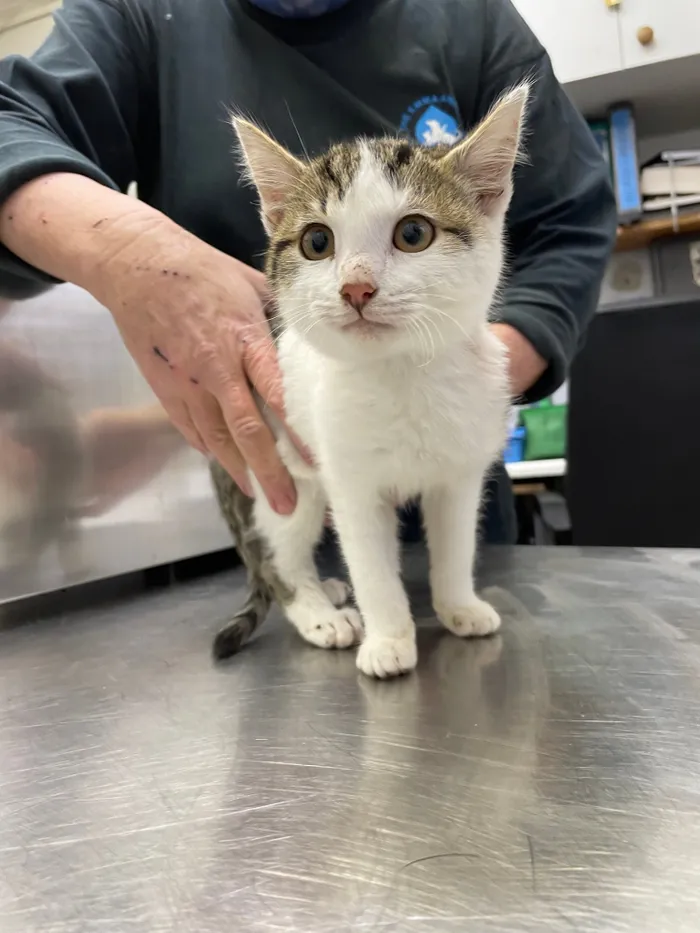Non-profit organisation warns of deadly feline virus in cats

Cat owners are urged to have their pets vaccinated after an increase in confirmed cases of the highly contagious feline panleukopenia. FILE
Cape Town - Following an upsurge in cases of the infectious feline panleukopenia, cat owners are being advised to get their pets vaccinated.
The Emma Animal Rescue Society (Tears) detected a 90% mortality rate in unvaccinated animals, as the nature of the virus in the animals that contract the disease are often put down, unless they can be isolated for symptomatic treatment in the hope that they recover.
With the rise in feline panleukopenia cases following a distemper scare in May that claimed the lives of many unvaccinated dogs and puppies, a case of the disease was identified several weeks ago in Vrygrond, Capricorn.
Tears head veterinarian Dr Tania Heuer said the factor that contributes largely to a rise in feline panleukopenia cases are the high-density areas where there are a high number of unvaccinated cats.
“Feline panleukopenia is highly contagious and takes two to seven days to manifest,” Heuer said. “Cats contract the disease either by direct or indirect contact with other infected cats, or with the virus that can lie dormant in an infectious environment for years, having been present in the vomit, diarrhoea or nasal secretions of a sick animal. Infected cats experience loss of appetite, vomiting, diarrhoea, dehydration, high fever, and ultimately, death. The prognosis for cats that are malnourished and have a weak immune system is extremely poor. They are likely to pass away within 12-24 hours.
“This is a specific virus and pet owners (humans) are not susceptible to the virus. It’s a virus that affects unvaccinated cats and kittens only.
“Feline panleukopenia is avoidable if kittens and cats are vaccinated early. Like feline panleukopenia, distemper, together with canine parvovirus, are two of the most infectious diseases to dogs, and these, too, are avoidable if dogs are vaccinated early and kept up to date annually,” said Heuer.
With Tears vaccinating as many as 350 vulnerable pets a month, providing sterilisation and the first vaccine for free to its welfare clients living in Masiphumelele, Capricorn, Ocean View and Red Hill, TEARS head of communication and fundraising Lara van Rensburg said that vaccinating puppies and kittens was imperative to stop the spread of highly-infectious diseases, and to minimise the risk of animals getting infected and dying because of a preventable illness.
“We have a monumental responsibility to prevent the spread of the disease in our communities, and a high euthanasia rate in cases where a dog or cat tests positive for either of those three viruses,” Van Rensburg said. “The most important thing any pet owner can do for their pet, is to make sure they’re fully vaccinated.
“With the large overpopulation of animals and overcrowding that occurs in many of the informal settlements that TEARS serves, zoonosis (the transfer of animal-borne diseases to humans) occurs. Homeless and abandoned animals that are more susceptible to infection roam freely, which, combined with the overcrowded conditions in these low-income communities, means the spread of the virus is an ongoing challenge,” she said.
“Increased animal welfare, in the form of free sterilisation and vaccination support, results in lowered instances of giardia (causing diarrhoea), rabies, ringworm, Erlichia, intestinal worms and scabies as well, as diseases carried by ticks and fleas passing to humans.
“For protection from feline panleukopenia, kittens need two vaccinations one month apart, starting at eight-weeks-old, while a standard annual vaccination is adequate for adult cats. For protection from distemper and parvo, dogs need one vaccination at 6 weeks, another again at 9 weeks, and then preferably a third vaccine at 12 weeks (3 months) will provide sufficient protection from the virus, hence cat owners are urged to have their pets vaccinated as soon as possible,” said Van Rensburg.
Related Topics: